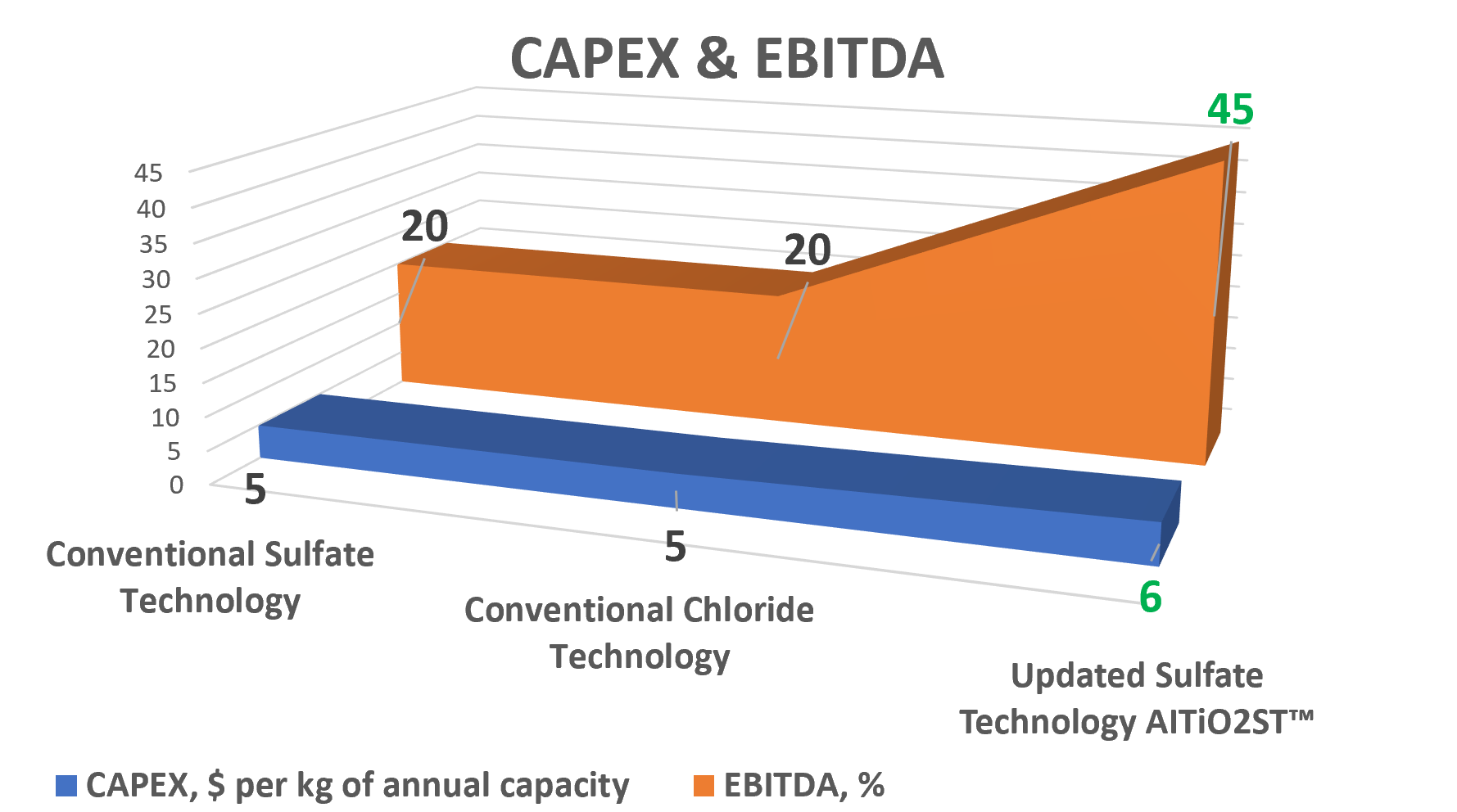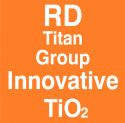AITiO₂ST™
ADVANTAGES OF AITiO₂ST™ TECHNOLOGY

ECONOMIC EFFICIENCY
In comparison with construction of conventional sulfate or chloride titanium dioxide plant, construction of a new plant using AITiO2ST™ technology allows for a relatively small increase in CAPEX (by 20%) to obtain a significant increase of EBITDA (on 125%).


ENERGY EFFICIENCY
Water consumption:
Fresh water consumption is reduced by 2-2.5 times in comparison with conventional sulfate technology;
Possibility of using water from artesian wells with high salinity (brackish water), which is important for arid and desert areas with a shortage of fresh water;
‘Smart’ system of filtrates reuse;
Recycling and reuse of wastewater.
Natural gas consumption:
Use of advanced technologies in titanium dioxide production, ensuring minimal gas consumption (1.5-2.3 times less compared to conventional sulfate process).
Power consumption:
Ensuring own electric power production (up to 100% or more if needed);
Low cost of electricity (1.3-3.0 times lower than that offered on the market *).
* depending on local conditions in a particular country
Steam consumption:
‘Smart’ systems for maximizing steam energy use;
Use of secondary steam energy, which in a number of processes makes it possible to omit the use of primary steam;

NON-WASTE PRODUCTION
Liquid wastes:
No liquid wastes; complete processing of all liquid wastes, implementation of ZLD (Zero Liquid Discharge) approach.
Solid wastes:
Formation of solid wastes of harmless and chemically neutral salts after reverse osmosis (chemical composition: ions Na⁺, K⁺, Cl⁻, SO₄²⁻), which are dumped to a special storage with a relatively small area; prospectively, this waste can be considered as a raw material for the production of anti-icing compounds, inorganic salts, etc.;
• No other solid wastes, including gypsum.
Air emissions:
Use of best European practices and solutions, compliance with the standards adopted in the EU.
Capture and oxidation of SO2 to SO3;
Collection of sulfuric acid mist;
Trapping of all kinds of dust.
Carbon Footprint:
Innovative technology for trapping ~ 40% of generated CO2 and, as a result, an improved carbon footprint for all finished products produced at the plant.

AUTOMATION
Automation and production management:
Maximum automation and robotization (‘hands-off manufacturing’ concept) of all main production departments;
Fully automated and robotic-aided packaging lines, warehouses, finished products shipment terminals;
Automation of higher levels of factory management (logistics, procurement, sales, accounting, personnel management, customer support, document management etc.);
Low number of staff (in terms of 80 ktpa titanium dioxide production plant):
About 75 people for the titanium dioxide production shop with 80 ktpa capacity;
About 400 people for the entire production;
High level of staff motivation; regarding highly professional staff as the highest value.
